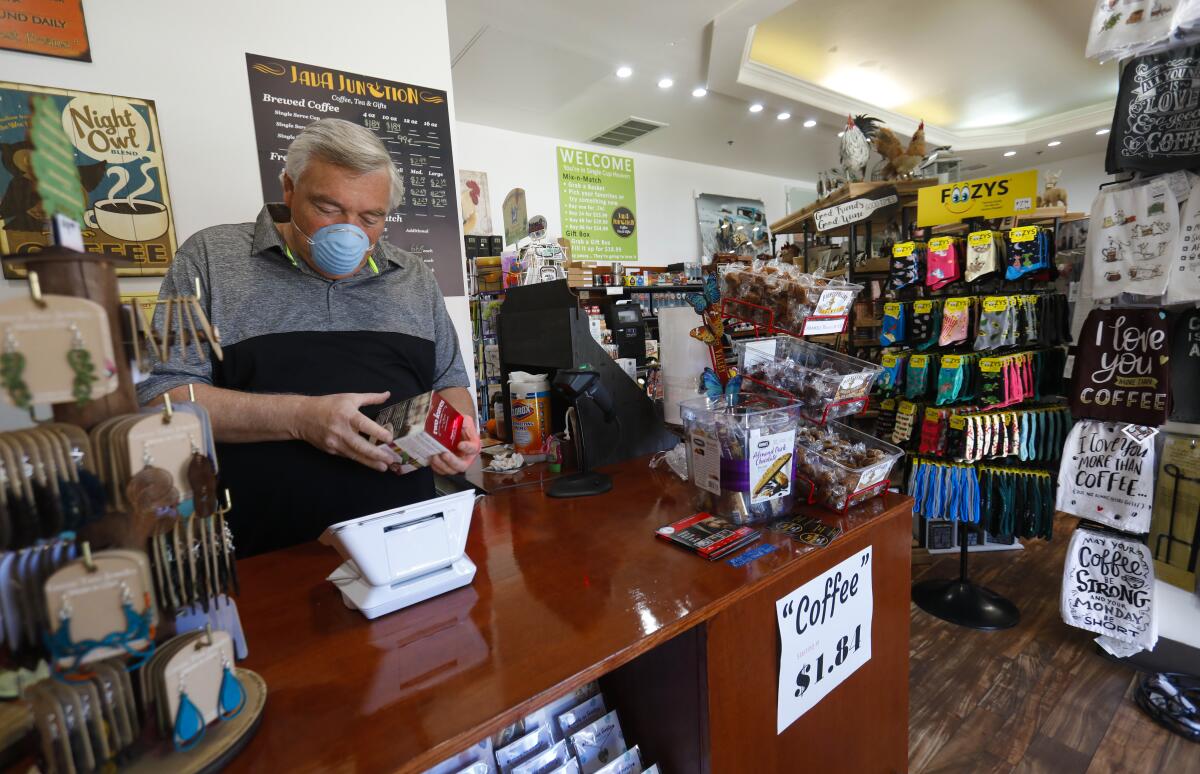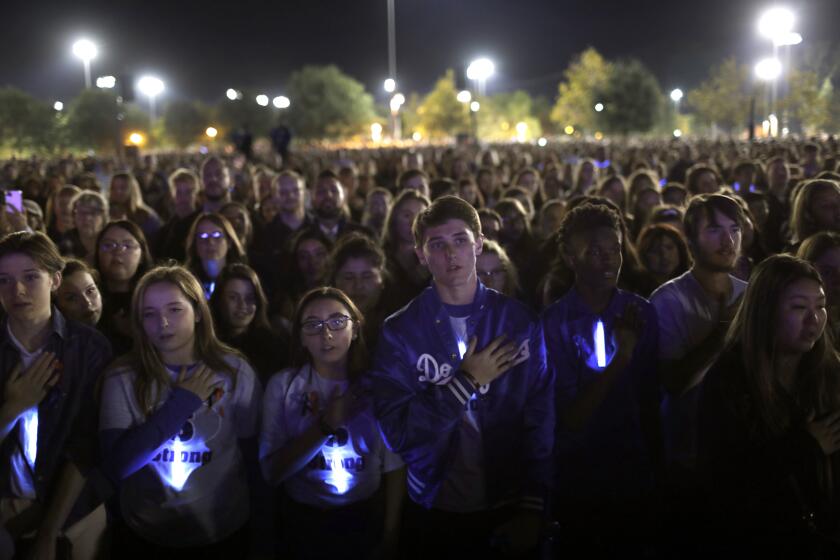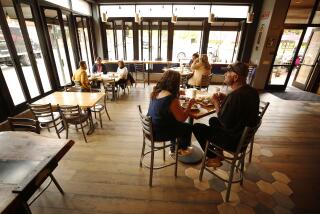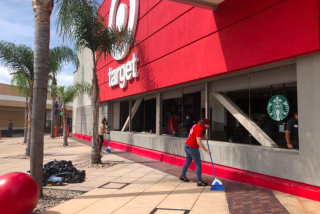California allows many more retail stores to reopen

- Share via
California health officials said Monday that, subject to approval by county public health departments, all retail stores could reopen for in-store shopping under previously issued guidelines.
The existing guidance for retailers, which had applied just to those counties approved for wider reopening, now applies statewide. Retail can open for in-store shopping throughout California. Retail does not include personal services such as hair salons, nail salons and barbershops.
It marks the latest move to slowly reopen California’s economy amid the coronavirus outbreak.
When Adam Bratt studied the faces of his Advanced Placement psychology students that morning in December, he saw trauma.
Some officials had been pushing for the move, hoping to put small businesses on the same playing field as big chains.
“Thank you, Governor Newsom,” L.A. County Supervisor Janice Hahn said in a tweet Monday. “As we continue to battle this virus, this policy will make all the difference to the small businesses in our communities that are struggling to survive this crisis.”
It was unclear Monday whether L.A. County health officials would adjust their reopening guidelines in light of the state’s declaration.
California also released new coronavirus health guidance for religious services on Monday, saying houses of worship must limit total attendance to 25% of a building’s capacity and stop passing around offering plates, in addition to taking other precautions.
The 13-page document, released by the California Department of Public Health and Cal/OSHA, does not obligate churches, mosques, temples and other houses of worship to resume in-person activity, officials said.
In fact, state health authorities strongly recommend that places of worship “continue to facilitate remote services and other related activities for those who are vulnerable to COVID19 including older adults and those with co-morbidities.”
More to Read
Sign up for Essential California
The most important California stories and recommendations in your inbox every morning.
You may occasionally receive promotional content from the Los Angeles Times.















